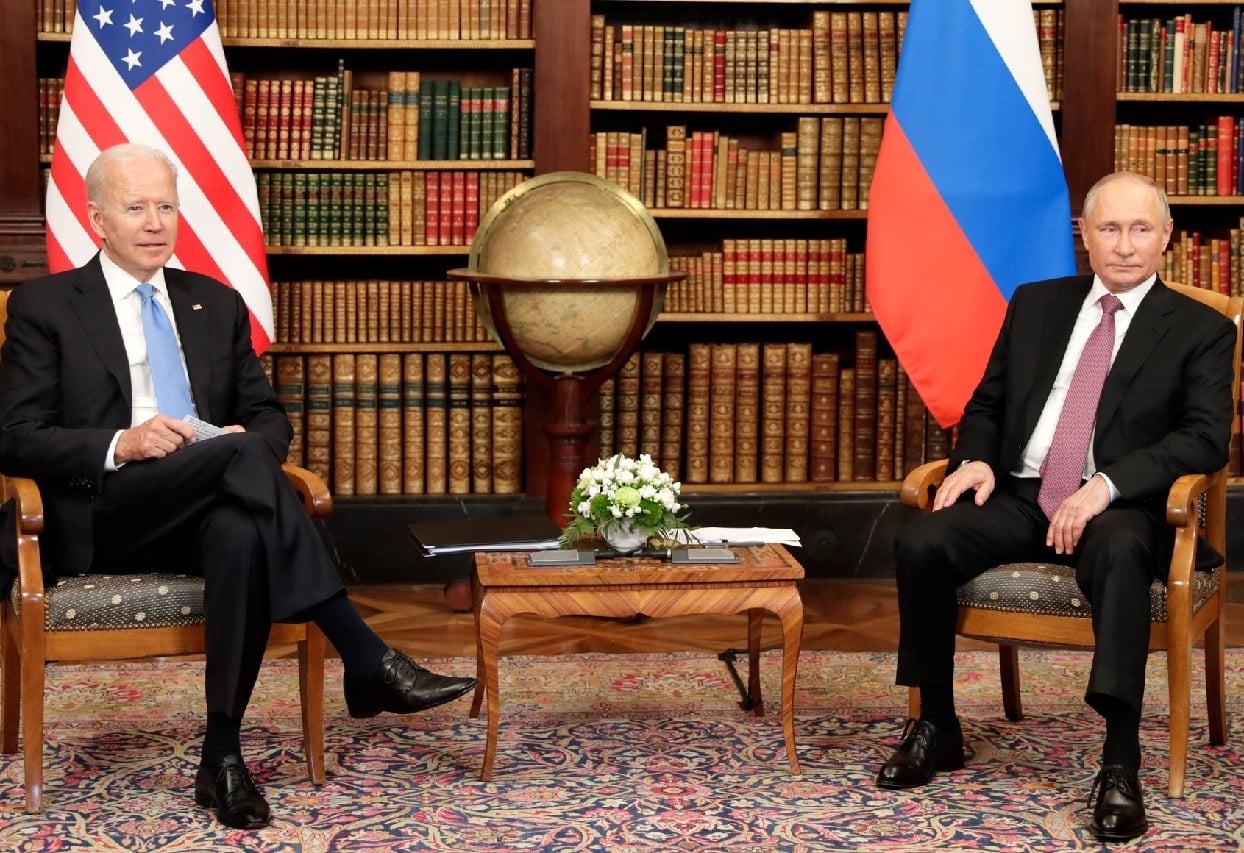Russian-American relations are at their lowest point since the end of the Cold War. Both countries have issued sanctions, closed consulates, and removed diplomates. Several arms control agreements have also been cancelled, including the Anti-Ballistic Missile Treaty and the Intermediate-Range Nuclear Forces Treaty. And although it was eventually renewed, the Strategic Arms Reduction Treaty was allowed to expire. There are also signs of a new arms race unfolding over hypersonic weapons.
This is dangerous territory, and it should be the priority of the Biden administration to turn it around. The U.S.-Russian relationship is arguably the most consequential security relationship in the world. Combined they own over 90 percent of the world’s nuclear weapons and unlike its relationship with other rivals, America’s relationship with Russia is almost entirely confrontational. On matters of arms control, cyber security, and the reach of China in Eurasia, the two share a long list of interests yet never seem to make progress on any of them.
Every post-Cold war administration has understood the importance of getting this relationship right, and each has attempted some sort of rapprochement. Bush hosted Putin at his personal ranch, Obama had his famous reset. Trump entered office as the most pro-Putin president in history. Yet, they each end up with poorer relations than when they started.
And why is that?
It is not because Putin thrives on chaos or because the corrupt oligarchy that runs Russia needs a hostile foreign policy to justify their heavy-handed rule at home. No, the reason why America’s relationship with Russia never improves is that America has never honestly addressed what Russia wants, which is to be secure in its own borders and to be treated as an equal and respected partner.
Regime survival is a priority for all major powers, but for Russia, it borders on paranoia. With no natural borders, Russia has only felt secure when it has controlled its near abroad. This does not necessarily mean empire, but it does mean that those in near proximity must agree to the demands of Moscow before others.
And for the past 30 years, there has been no other country that has done more to undermine this interest than America. Since 1989, fourteen new states have been added to the North Atlantic Treaty Organization (NATO), all of which were once part of Russia’s historical buffer. And although it is unlikely to happen anytime soon, there have been serious discussions to include Ukraine and Georgia too.
This is a serious compromise to Russian security, not because Moscow expects America to invade from these new territories, but because of what some in Russia refer to as America’s “democratic fundamentalism,” or the idea that all other nations should be democratic, regardless of their own culture and history. It was never mutual security that motivated NATO expansion, but America’s desire to transform the region politically. NATO membership, it was argued, would provide the security the states needed to consolidate their newly found democratic gains.
The results of this strategy are mixed, considering Poland and Hungary’s illiberalism over the past several years, yet it is the American aim to change the region’s politics which Russia considers threatening. Not only does it limit Russian influence in these areas, but to have successful democracies just outside Russia’s border undermines Russian authority at home.
The second Russian demand is to be treated like an equal and respected partner, something America usually has not done. Most of this desire is rooted in recent history, as it was not that long ago that the international community needed the consultation of the Russian people if it wanted to make progress on any significant world problem. This was a major source of pride for the Russian people. But then the empire fell, and Russia had to put up with American hubris, regardless of how unbearable it was. So whereas America sought dialogue and compromise with the Soviet Union, it now routinely crosses Russian red lines as well as mocking its relevance in international affairs.
It does the world little good to have its two principal nuclear powers in a downward spiral with no bottom in sight. America needs to improve its relations with Russia, and the first step towards doing this is to start appreciating Russian interests. Until America does, Russia will continue being a disruptive power. The good news is that Moscow can be a valuable partner when its interest aligns. Russia, for example, supported the United Nations sanctions on Iran over its nuclear program. It also allowed America to use its air space in support in its war in Afghanistan. There are several important issues where Russia and America would both benefit if they had a more cooperative relationship. But to get there America must first stop treating Russia as a junior partner and begin to respect Moscow’s legitimate security interest in Eastern Europe.
Brian Clark is a foreign policy analyst with a research interest in American grand strategy. His work has been published in The National Interest and The American Conservative.

